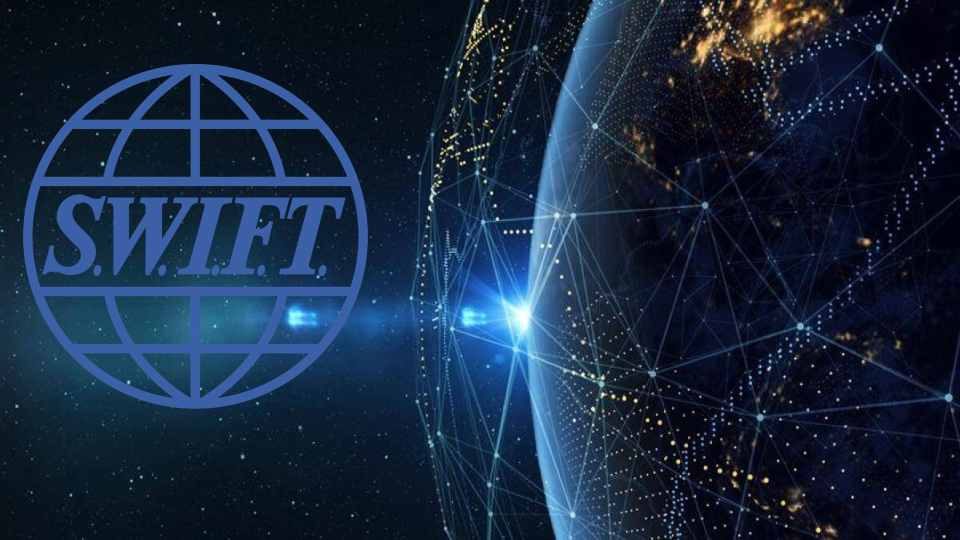The weaponization of the SWIFT banking system could be the beginning of the end of the U.S. Dollar as a global reserve currency, experts warn

The SWIFT banking system has been in the news in recent days. Since the war between Russia and Ukraine began on February 24, SWIFT has become a hotly debated topic as the U.S. and its allies imposed economic sanctions on Russia to further isolate the country from the global financial community to force Moscow to withdraw its troops from Ukraine.
SWIFT, which stands for The Society for Worldwide Interbank Financial Telecommunication, is a global financial messaging system founded in Belgium on May 3, 1973. It’s a financial system that connects banks, financial institutions, and governments around the world. SWIFT financial network is used by banks to send secure messages about transfers of money and other transactions.
Last week, we wrote about SWIFT after western leaders slapped Russia with a new series of sanctions including the freezing of the Russian central bank’s assets and international reserves. Unfortunately, this is not the first time the United States has used SWIFT as a weapon against its enemies.
In 2018, Former Treasury Secretary Steven Mnuchin also threatened China with the use of economic nuclear option during a conference broadcast. Mnuchin said:
“If China doesn’t follow these sanctions, we will put additional sanctions on them and prevent them from accessing the U.S. and international dollar system, and that’s quite meaningful.”
However, many experts said that the weaponization of the SWIFT banking system and U.S. dollars could force other countries to reduce their dependence on SWIFT and U.S. dollar by trading in another currencies, which could potentially lead to the end of the U.S. Dollar as a global reserve currency.
On October 12, 2018, Michael Maharrey, the Communications Director for the Tenth Amendment Center, said that the “SWIFT and dollar dominance give the U.S. a great deal of leverage over other countries.” Maharrey warned:
“The U.S. government showers billions of dollars in foreign aid to “friends.” On the other hand, “enemies” can find themselves locked out of the global financial system that the U.S. effectively controls using the dollar.”
Maharrey also cautioned:
“A number of countries including China, Russia and Iran have taken steps to limit their dependence on the dollar and have even been working to establish alternative payment systems. A growing number of central banks have been buying gold as a way to diversify their holdings away from the greenback. It comes as no surprise that countries on shaky ground with the U.S. would take such measures, but even traditional U.S. allies have grown weary of American economic bullying.”
Maharrey is not alone in sounding the alarm bell. On Monday, about four days after the war started with Ukraine, JP Morgan CEO Dimon warned that disconnecting Russian banks from the SWIFT messaging system may bring “unintended consequences” that include third parties finding ways around the penalty.
JPMorgan was one of the Wall Street firms that had advised Washington against kicking Russia off SWIFT, according to a Friday report from Bloomberg. JPMorgan argued that excluding Russia from SWIFT could have far-reaching fallout that could hurt the global economy and undermine the purpose of the penalties.
Meanwhile, on the same day, Wall Street giant Goldman Sachs also warned:
“Overuse of dollar sanctions could compel other actors to try to replace Dollar transactions, as Russia already did to some extent following earlier sanctions.”
In closing, seening how the sanctions cripple Russia economy in just one week, countries like Brazil, India, China, and others may start looking for a second option and reduce their reliance on SIWFT and .U.S dollars for international commerce. The outcome could also be devastating to the United States if oil countries in the Middle East decide to no longer accept US dollars in exchange for their oil.
The video below from ColdFusion goes into greater detail to explain the consequence of the sactions on Russia and the potential risks to the global economic at large.




